When Tamenech Assale wakes up in her village in Ethiopia, she thinks about the eight children who rely on her. She’s a mother and grandmother, and she and her farmer husband struggle to provide for them. Their grandson, Tesfahun, whose mother left the family and whose father is away because of military service, was suffering from malnutrition. Because she wanted to learn how to keep her family healthy, Tamenech attended International Medical Corps-supported nutrition and cooking classes.
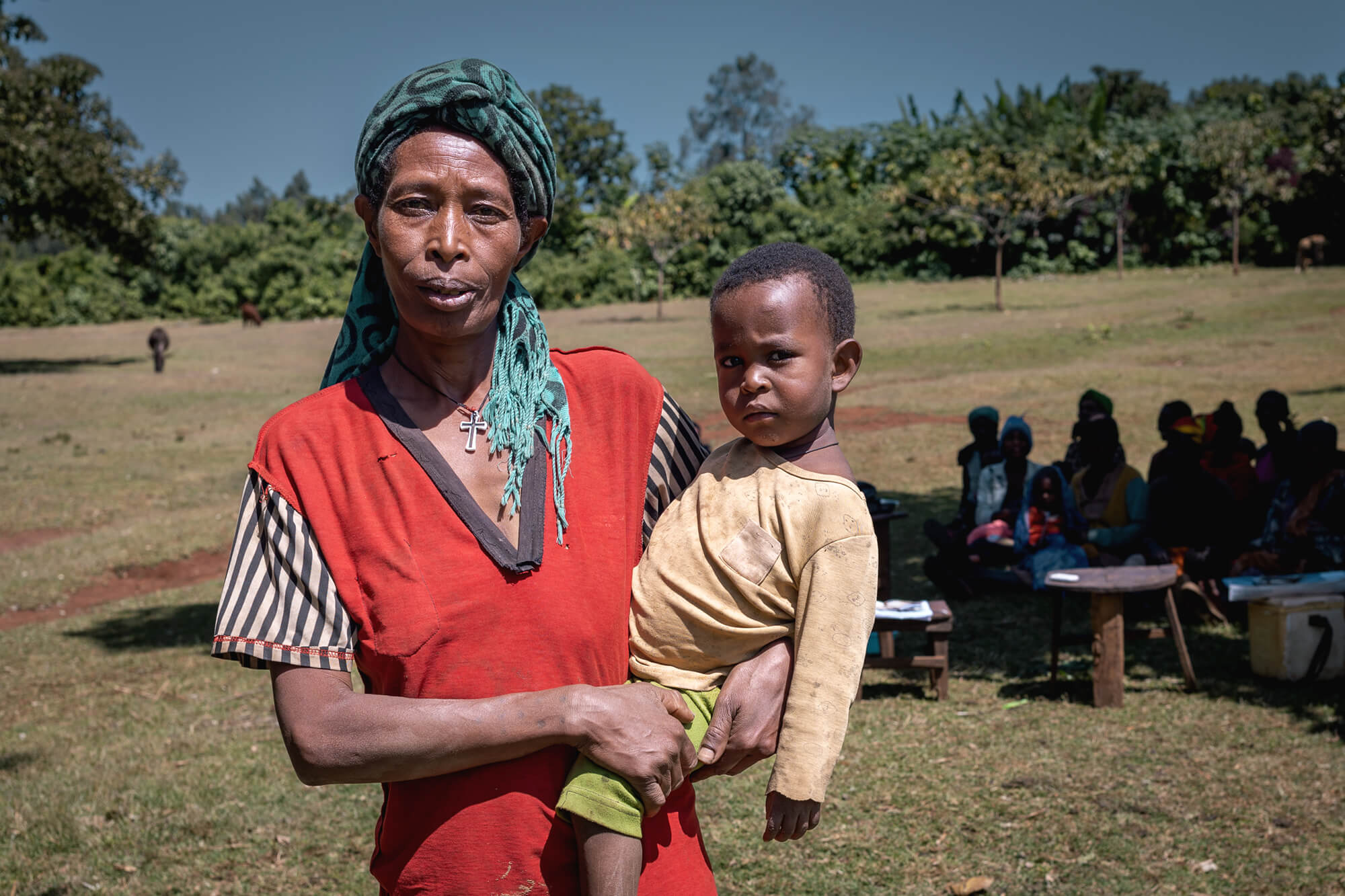
“I was worried about my grandson losing weight and always being sick,” Tamenech explains. “Now I know about the complications of malnutrition and that I can feed him locally available, nutritious foods. I will continue feeding him those foods. And I am grateful to the hard-working International Medical Corps team.”
Across the Horn of Africa and the Middle East, years of drought, conflict and economic upheaval have led to chronic malnutrition among families who already had trouble putting enough food on the table. This is why International Medical Corps supports lifesaving programs—including gardening training and supplies, cooking classes and cash assistance for livestock—to help families who face chronic food insecurity move from relief to self-reliance. To meet some families in Ethiopia, Nigeria and Yemen who have benefitted from these programs, read on.
Ethiopia
Ethiopia is plagued by conflict and drought that has left nearly 8 million people in need of food assistance for survival. Drought conditions have limited access to water, forcing people to travel long distances for it. Often, they are forced to collect water from contaminated sources. The cumulative effect of these and other shortfalls—including a limited food supply and escalating food prices—is chronic undernutrition, especially in young children.
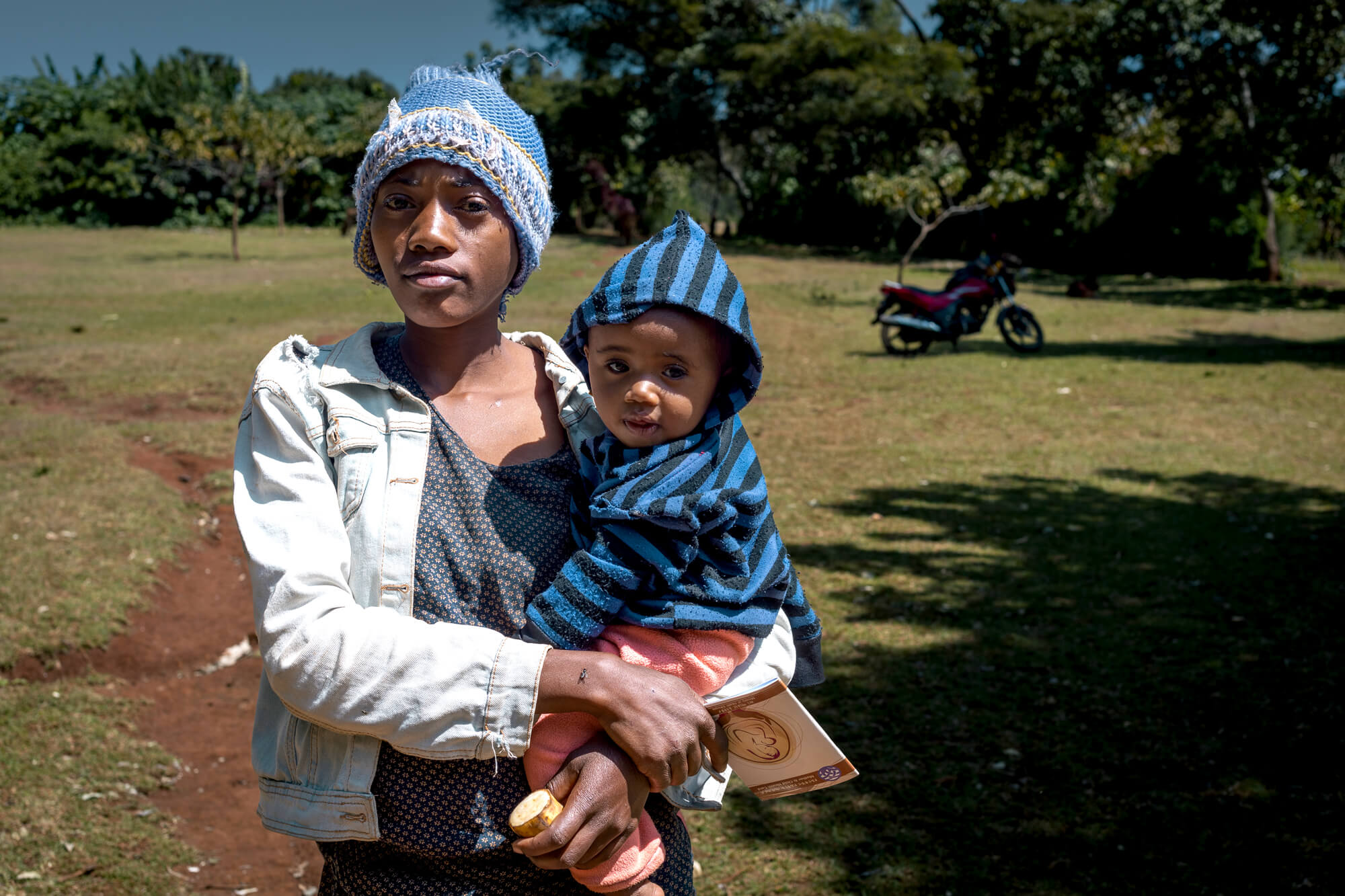
Aynalem Wolde, 22, is a homemaker who is the mother of two young daughters. Her husband, Asefa, farms a small plot of land. Because their younger daughter, Talake Asefa, was underweight, they became concerned for her health. Aynalem began attending cooking classes and now prepares a diverse diet for her family using locally available foods.
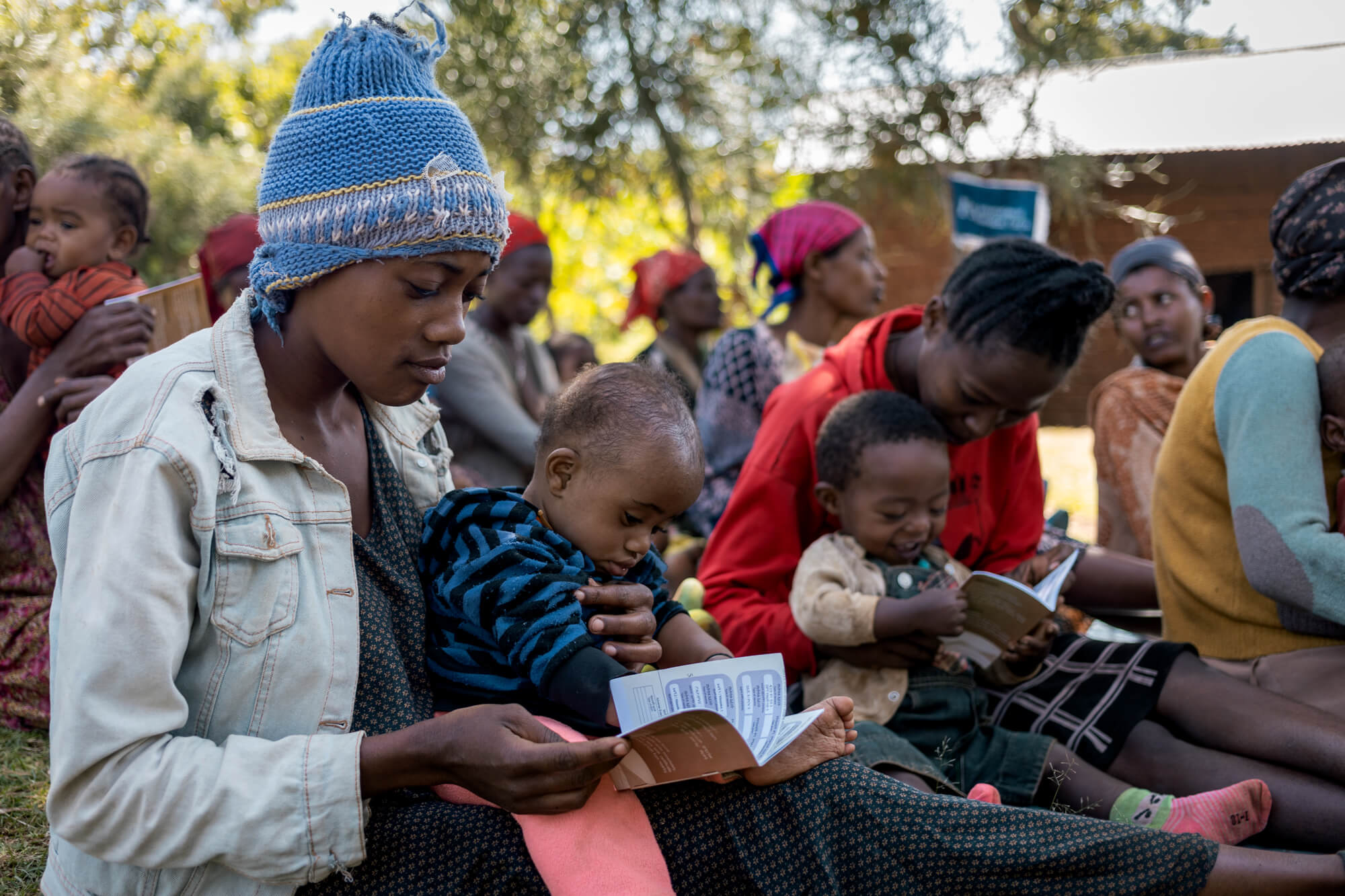
“Before International Medical Corps’ intervention, I couldn’t cook a diverse diet for my children,” Aynalem says. “Thanks to International Medical Corps, I have been trained in how to do that for my family.”
Eshale Alambo is a mother of 11 children. Though she makes pottery and her husband, Israel, works as a carpenter in the village, their income is not enough to support their large family. Their son Philimon Israel, 18 months old, was underweight. Thankfully, they have a small plot of land where they planted a kitchen garden. Through an International Medical Corps-supported gardening program, Eshale received training and supplies, and learned about the role of a diversified diet in providing essential nutrients for her family. After three months, Eshale’s garden thrived—and Philimon Israel gained weight.
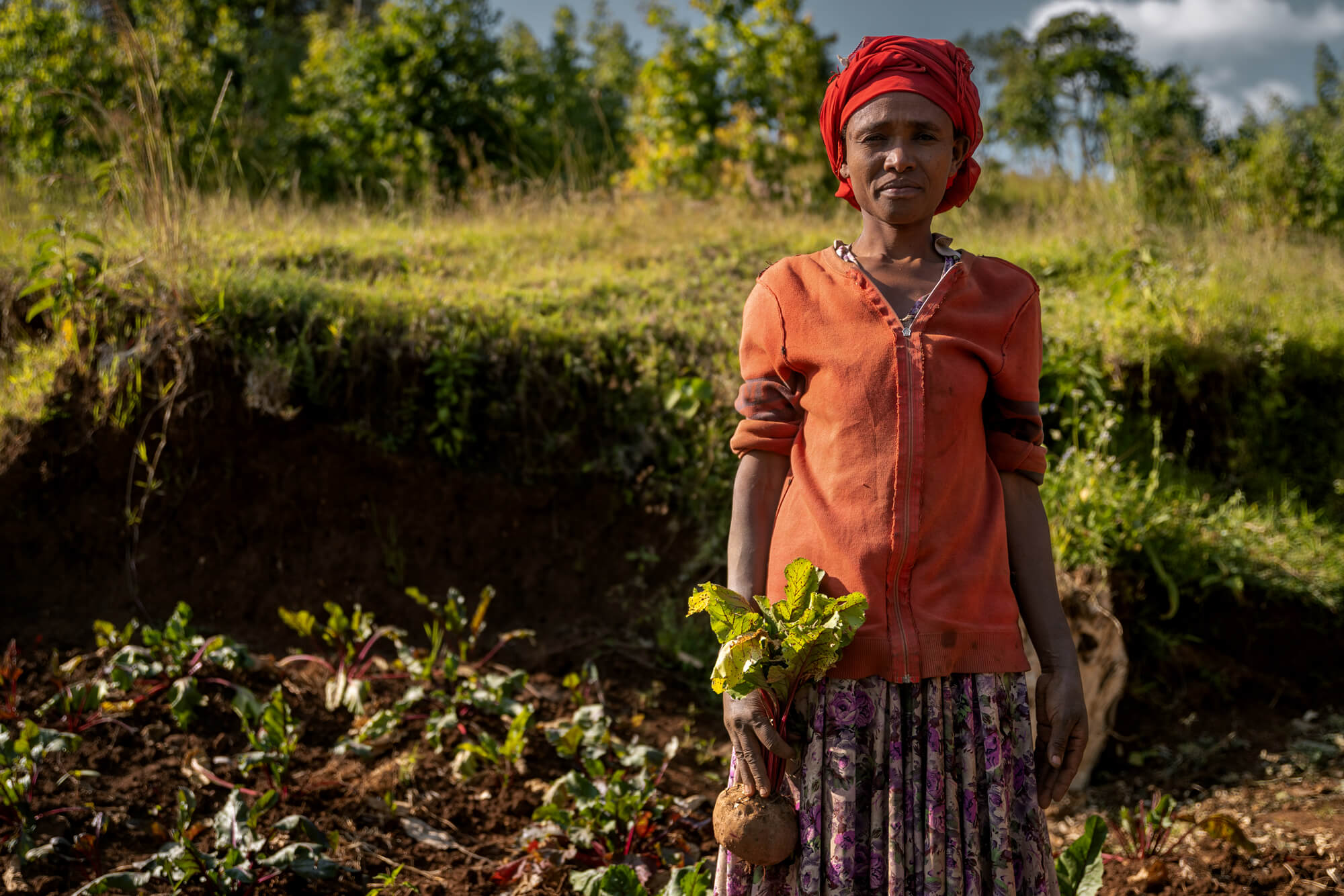
“I would like to say thank you to all the supporters, International Medical Corps and the project staff, for transferring lifelong knowledge as well as saving my children from malnutrition,” says Eshale. “The vegetable seed provided by International Medical Corps has become a source of food for my family. I have learned a lot about the importance of vegetables, which are rich in nutrients for physical and mental development and disease prevention.”
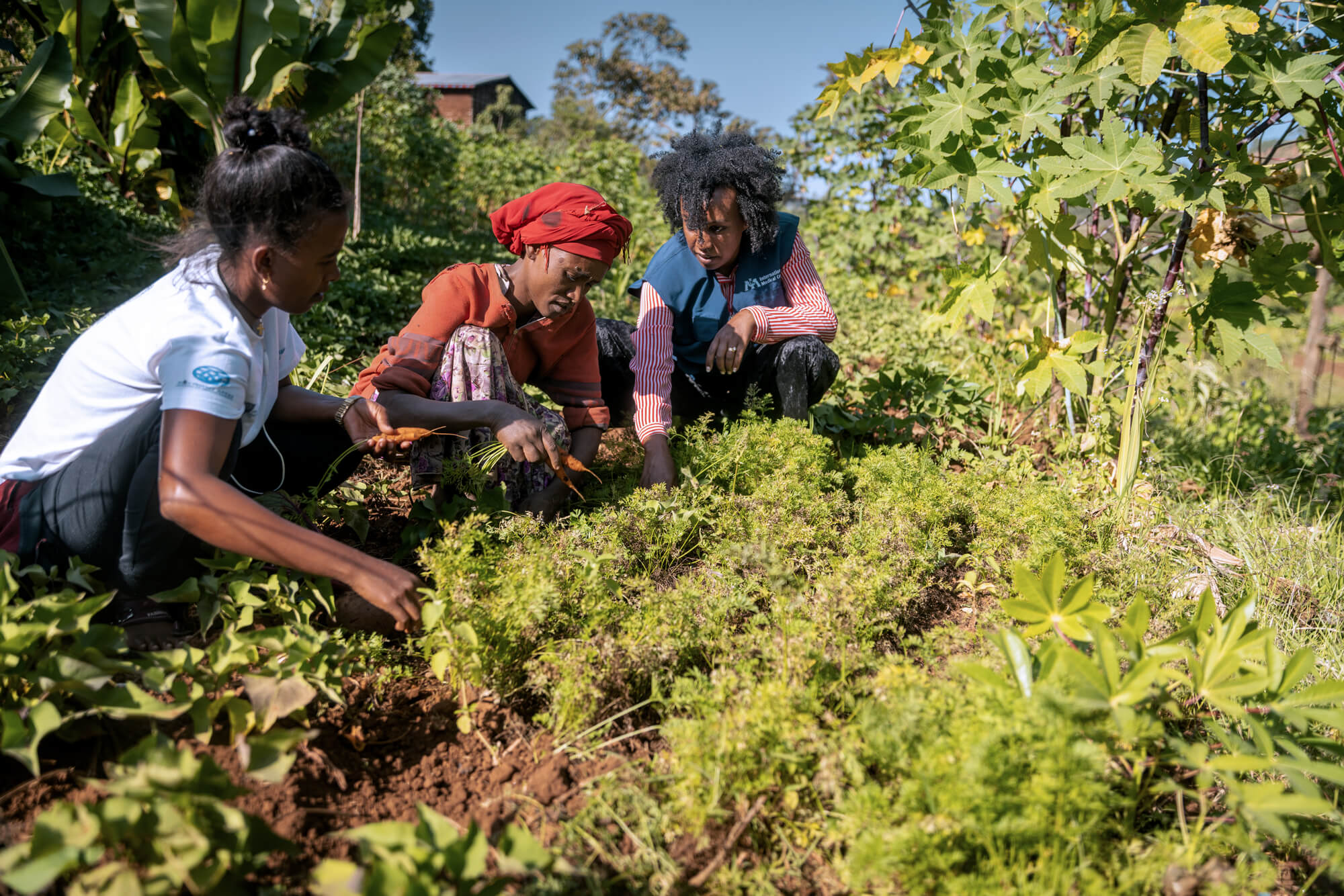
After the first harvest, Eshale used seeds from that crop to expand her garden, where she now grows carrots, beetroot and tomatoes, increasing the amount of nutritious food her family eats.
Nigeria
International Medical Corps recently completed a project to strengthen resilience and social cohesion in two areas of northeast Nigeria: Shani, in Borno state, and Bade, in Yobe state. The project provided cash assistance, resources and training to meet the immediate food gaps while helping people learn how to keep livestock and get involved in aquaculture, helping to mitigate the risk of seasonal crop failure and other climate-related shocks.
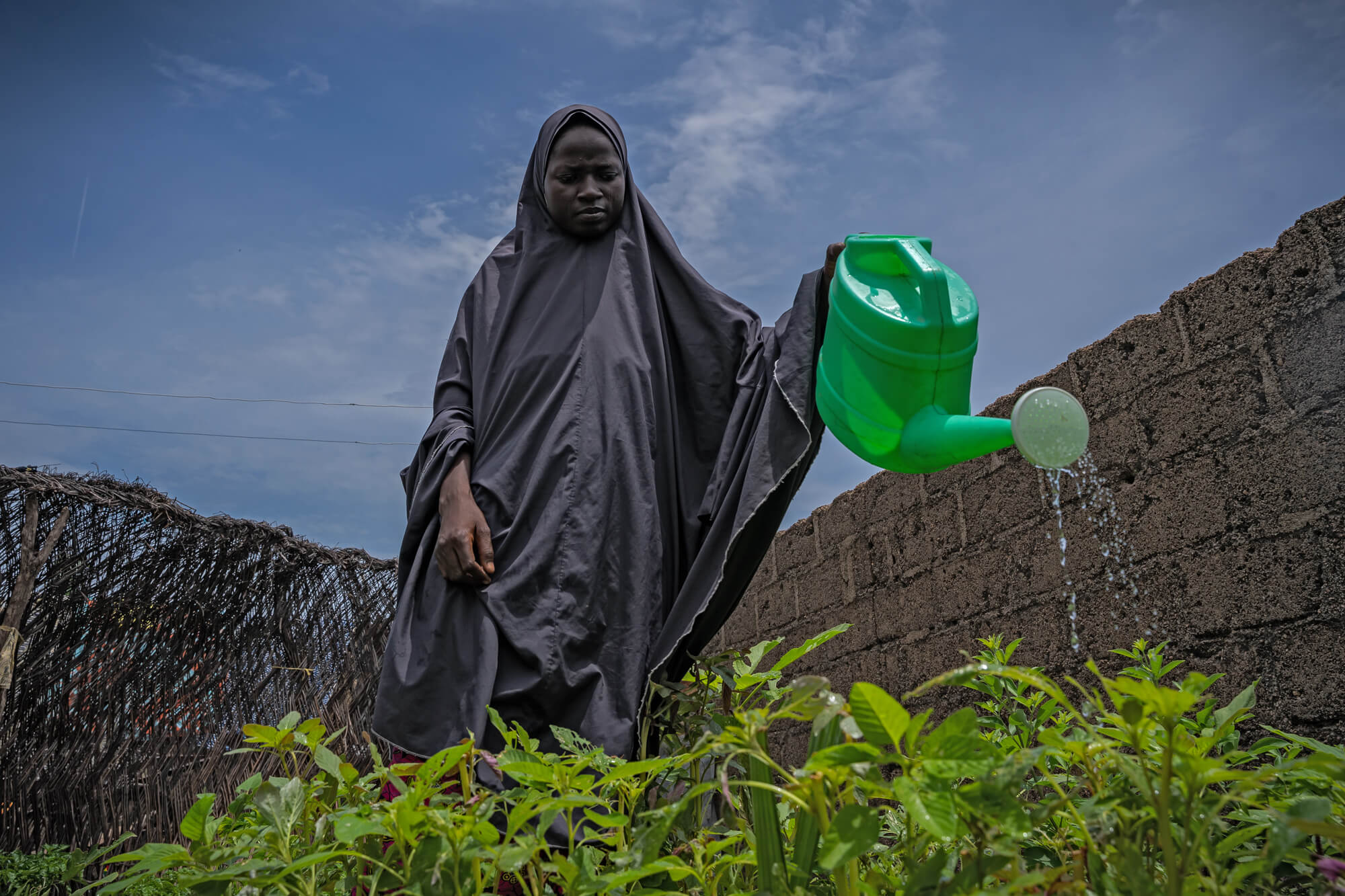
Rashida Mohammed uses cash assistance that she receives from International Medical Corps to cultivate her garden, where she plants vegetables for her family meals and to sell at the local market. She also used our support to buy goats and ducks, which help provide her with milk and eggs.
Fati Garba is an okra farmer who had available farmland at her disposal but lacked the resources and training to make full use of it. With our team’s support, she learned how to farm even during the dry season, which has helped pay the fees needed for her children to go to school.
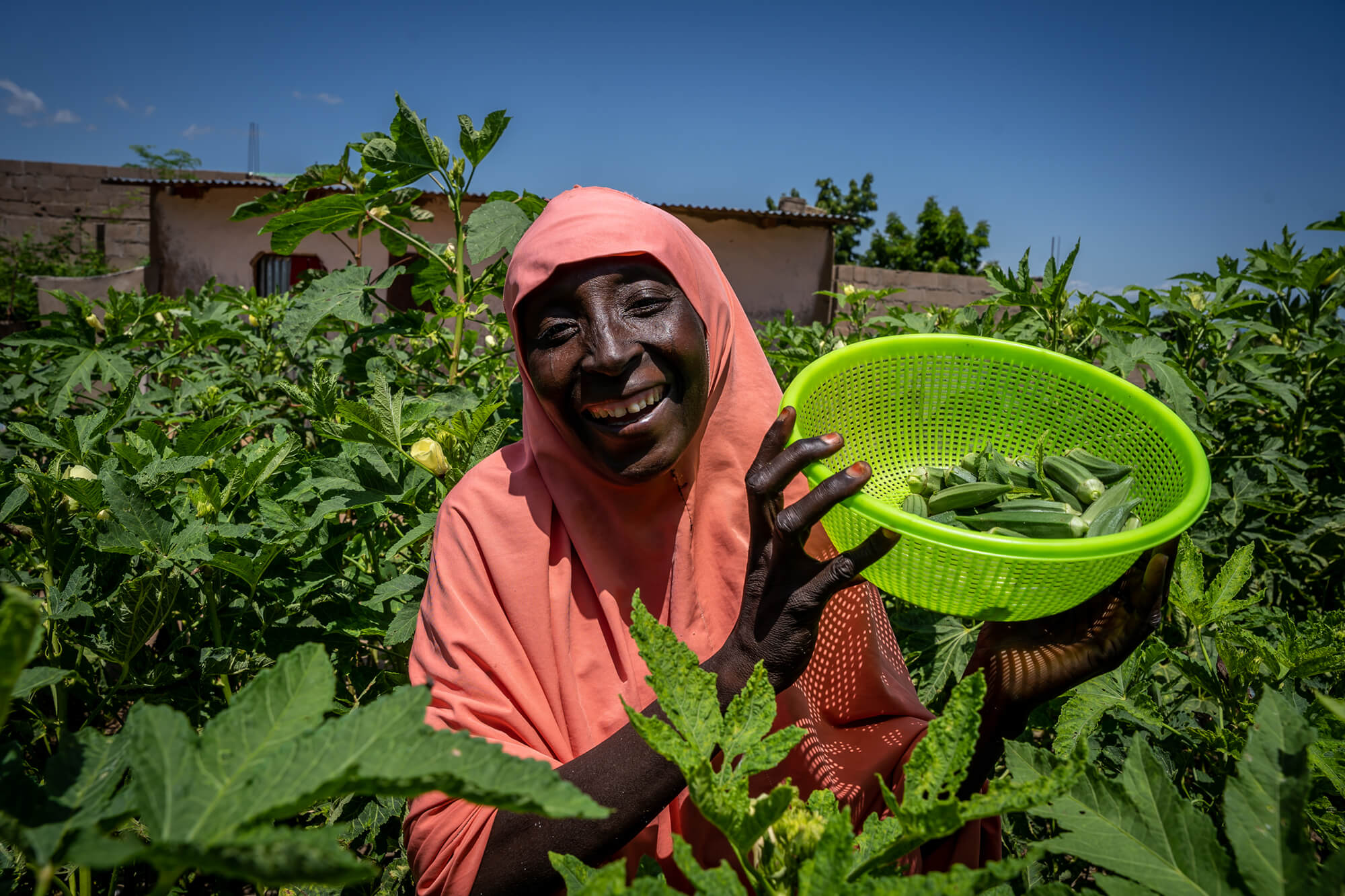
Asmau Sambo, a 38-year-old mother of four, received three female goats and one male goat as well as cash assistance, which she used to buy additional livestock. She also purchased a refrigerator and a machine to grind food for her animals. With the money she now earns, Asmau contributes to the local savings cooperative, which operates out of an International Medical Corps women’s and girls’ safe space.
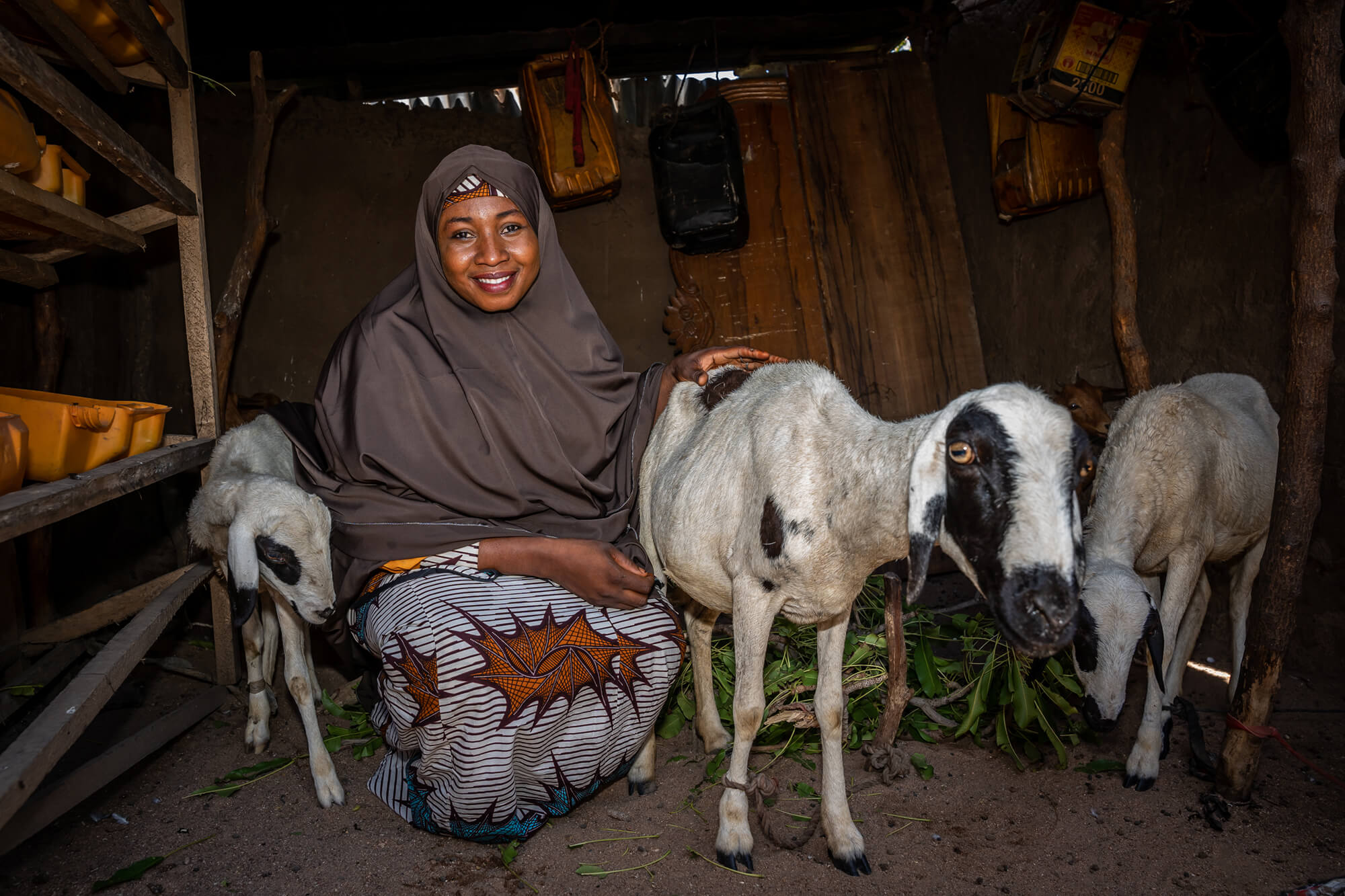
Yemen
Nearly 17 million people are food-insecure in Yemen, home to one of the world’s largest and most complex humanitarian crises. Recent dynamics—including an escalation in armed conflict and rising prices for medical, food and other commodities, have disrupted public services and thwarted efforts to build resilience. Approximately 2.2 million children under 5 suffer from acute malnutrition.
Hussein Masoud, 40, is father to three daughters. When his youngest, Badea’a, developed a high fever and loss of appetite at just a few months old, Hussein took her to an International Medical Corps-supported health center where she was diagnosed with malnutrition. The health center provided Badea’a with treatment and supplementary feeding, but her parents struggled to provide her with proper care and nutrition due to their financial situation. International Medical Corps enrolled the family in a cash-assistance program. With the payments, Hussein was able to catch up on their rent and purchase cooking materials and four sheep.
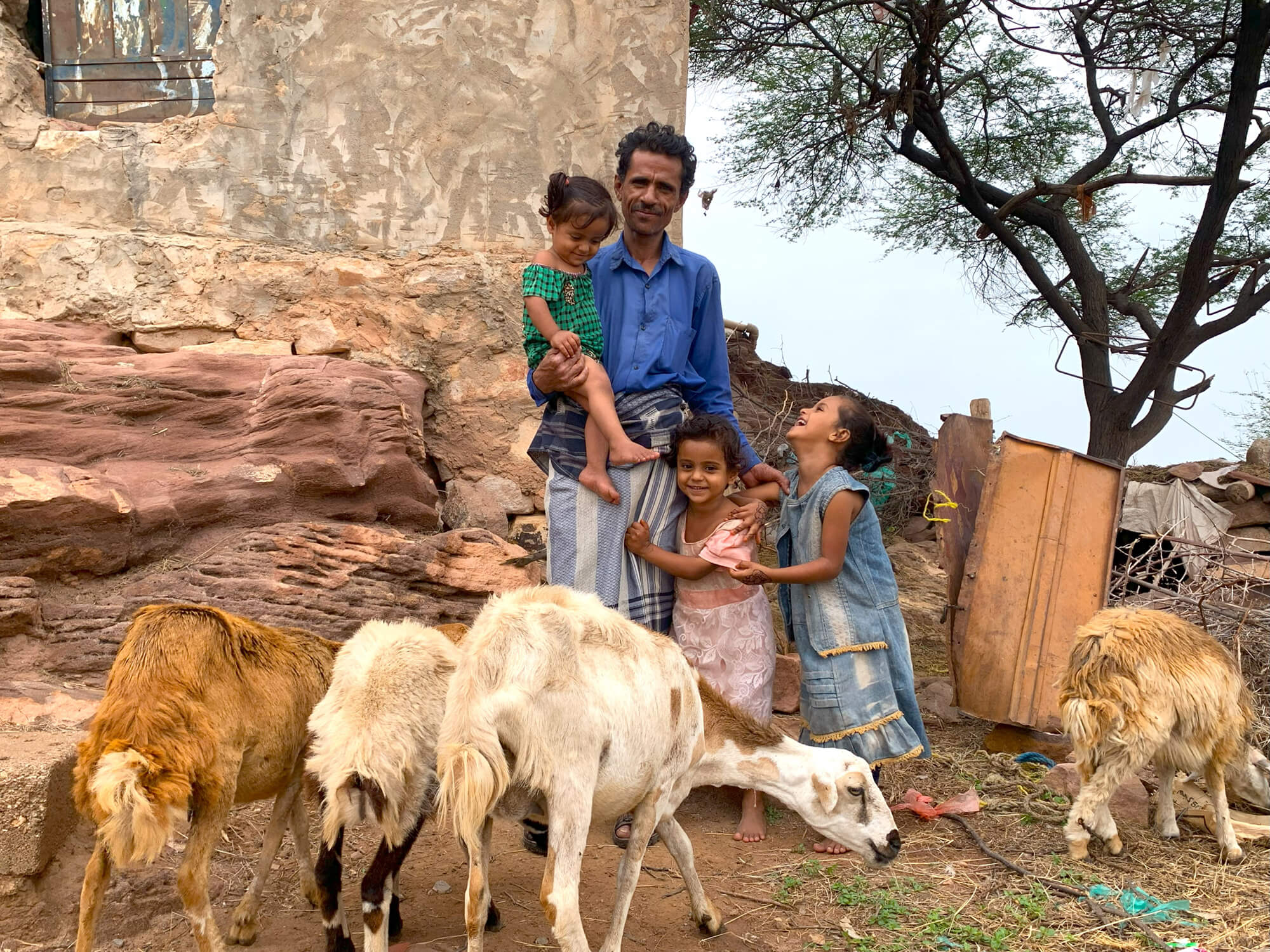
“The cash assistance I received from International Medical Corps changed my and my family’s lives,” explains Hussein. “It allowed me to feel stability and hope for the future after years of suffering and instability due to war and displacement. I am now able to provide for my family’s basic needs and even start a small farm to improve our situation further.”
Hosn Saeed Abdullah Ahmed Al-Majnahi, 29, is a mother of six. She and her children live in a modest house in rural Yemen. Her husband, Amin Ghaleb Ahmed Al-Majnahi, constantly travels looking for work as a day laborer. Shortly after the war in Yemen began in 2014, Hosn became pregnant with their first child. Due to the war, they often didn’t have enough food. During each subsequent pregnancy, Hosn did not receive proper nutrition or healthcare. These harsh conditions affected her children as well, especially her youngest child, Younis, who was weak and thin from birth. Eventually, her husband took Younis to an International Medical Corps-supported health facility, where Younis was treated for malnutrition. International Medical Corps also enrolled the family in a cash-assistance program.
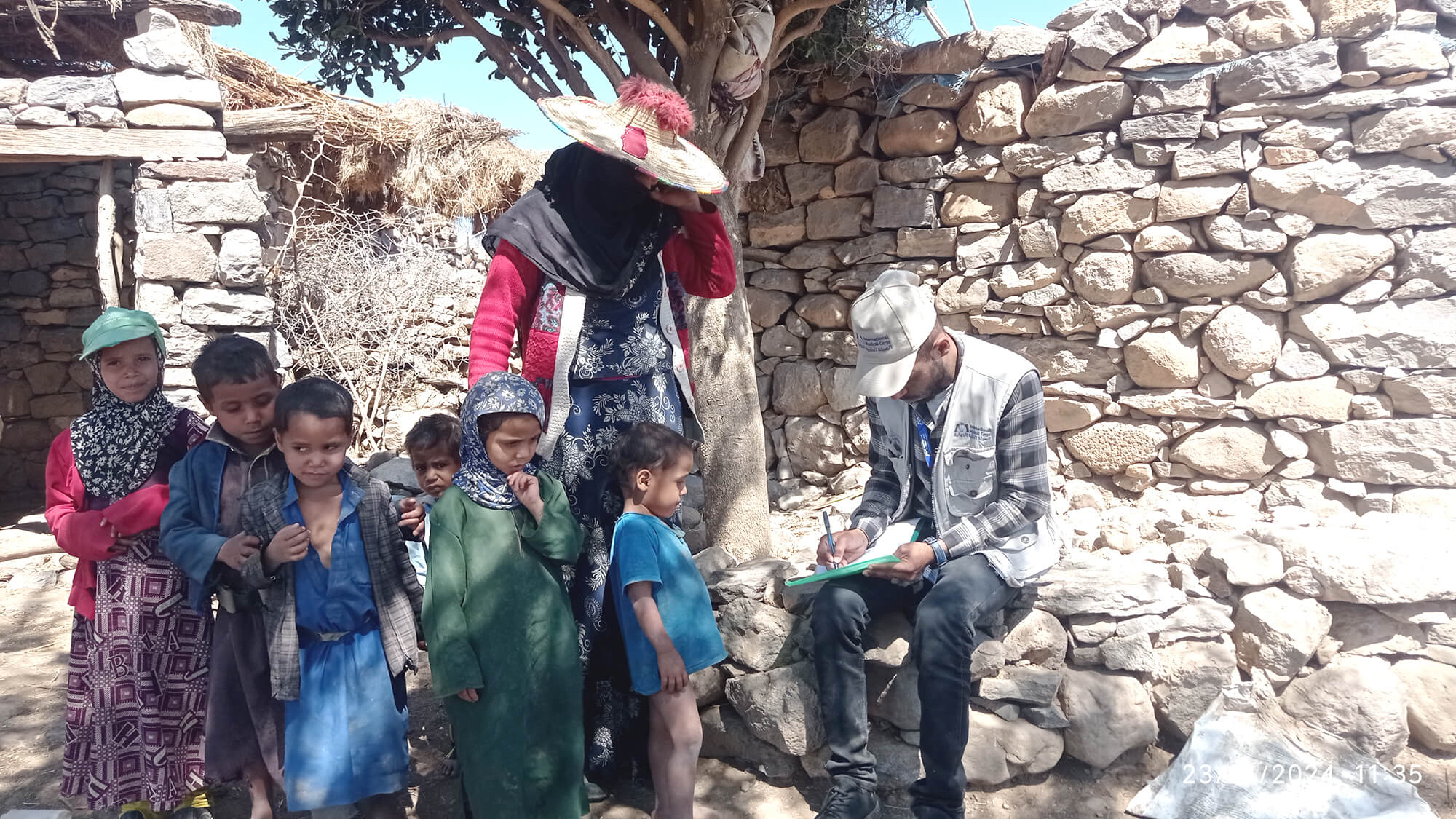
“My life changed when I began receiving cash from International Medical Corps,” Hosn explains. “I could buy food for my family, and after the third round of assistance, I started saving some money. I also bought a sewing machine, which was my dream for a long time. Now I will be able to work and help my husband with household expenses, and I won’t fear the lack of food for my family.”